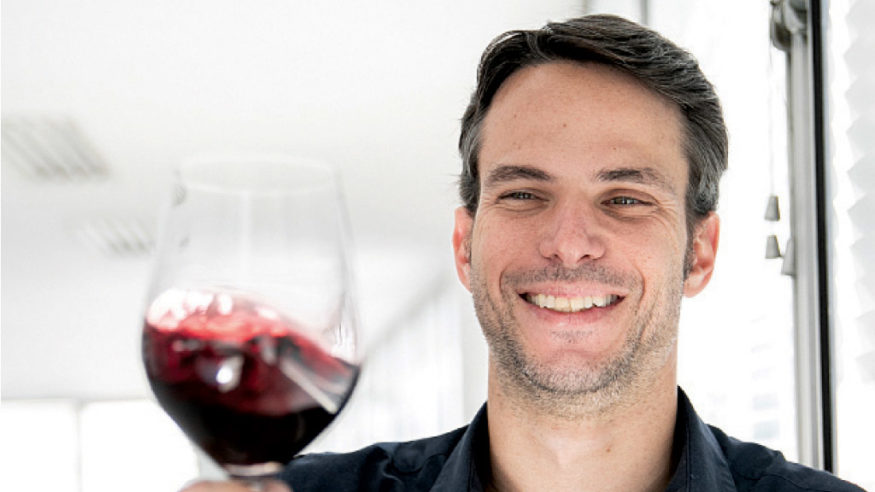News
Check out here relevant information on the market
22/04/2020

Behind the paralysis of part of the economy, there are businesses and companies that accelerate their sales and results. And the changes in consumption habits imposed by social distance create opportunities to innovate and grow.
Almost two centuries ago, since the Austrian friar Gregor Johann Mendel (1822-1884) documented his studies on the genetic mutation of plants and animals, thousands of scientists, biologists and geneticists have dedicated themselves to researching and understanding the complexity of life’s intense metamorphosis in the land. So far, the consensus is that the much feared ability of genes, DNAs and chromosomes to reinvent themselves and fight for survival is the answer to the longevity of existence itself. This same microscopic logic of species adaptation rules the world of economics and business – a phenomenon that, often invisible, is most evident in the hostility of the pandemic environment. In recent weeks, while entrepreneurs of all sizes and sectors have been sweating in the face of uncertainties generated by Covid-19 and the inevitable global recession, numerous activities have seen an explosion in demand. Activities such as distance learning (distance learning), telemedicine, delivery of all kinds, food and beverage e-commerce, as well as health-related services are rowing against the tide of concerns – and, of course, adapting to the new needs of customers in a scenario of social isolation.
Many of these businesses are nurtured by the survival instinct. So much so that Carioca MAG Seguros (formerly called Mongeral), a bicentennial company with revenues of R $ 1.4 billion in 2019, recorded a 17% growth in revenues in the first quarter of this year compared to the same period last year. For the company’s CEO, Helder Molina, the expansion has been driven by Covid-19. “People started to worry more about how to leave the family assisted in case something worse happens at that moment. Thinking about death is starting to stop being a taboo ”, says Molina. “Ten out of ten brokers of ours hear, every day, the same question: ‘does insurance cover coronavirus?'”, Says the executive, who highlights a visible change in consumers’ views. According to the calculations of the World Bank and the Swiss Re Sigma insurance company, the life insurance segment accounts for only 0.2% of Brazilian GDP. In the USA, the rate is 1.8%. In the United Kingdom, 3.5%.
“The use of technology is growing strongly. With the green light of the law, people feel more confident in robots ”Tiago Marin, director of Wishbox Technologies. (Credit: Brayam Dias)
The insurance sector is one of those that grows against most companies, but it is far from being the only one. A study carried out by the American consultancy Bain & Company stratified in four bands how the main economic segments faced the first post-pandemic weeks around the world. At the top are those that have seen an explosion in demand and are expected to keep rising in the long run (in addition to insurance companies, there are health plans, distance learning, online entertainment, tools for remote work, telemedicine and nutrition and health) ; followed by sectors in which demand has exploded, but is expected to stabilize over the long term (such as food and cleaning products); what fell sharply in the crisis, but may show a peak in the post-quarantine (appliances, beauty services and clothing and accessories), and what fell a lot and should have a slow recovery (gyms, events, restaurants, hotels and the travel sector ). In the final stage of production, the Brazilian research cut should point to a movement similar to the rest of the world. In the evaluation of the partner of the Brazilian unit of Bain & Company, Luciana Batista, the behavior of the Brazilian, at the moment, focuses on consumption of essential goods and segments in the technology area. “Even with companies in the clothing, bars and restaurants sectors having adapted to the crisis with online services, it will take time for digital to cover losses due to the drastic fall,” he says.
For the president of MAG Seguros, Helder Molina, people started to worry more about the safety of the family. “Thinking about death is starting to stop being a taboo” (Credit: Fabricio de Almeida)
What is already known, given the need to stay at home, is that technology has become an important ally of quarantine. A survey carried out by Catho Educação shows that, between March 21 and April 6, there was a 68% increase in enrollments for distance learning (distance learning) or semi-presential courses. Also according to the survey, the first weeks of isolation have already shown growth. Between the week of March 3 and 20, the platform had already registered a 44% increase in demand for distance learning courses. Among the most sought after subjects are Administration, HR Management, Biomedicine, Accounting Sciences and Logistics. “In addition to the low cost, compared to traditional teaching models, distance learning courses have their methodology with a greater focus on professional practice, ideal for distance learning”, guarantees Fernando Gaiofatto, director of Catho Educação. “In the current scenario, teaching can also be seen as an opportunity, not only for qualification but also for adaptation to circumstances”, he says. The same survey finds that, like workers, the job market is more open in relation to candidates with distance learning courses: 79% of the recruiters participating in the survey said that distance or face-to-face training is no longer a determining evaluation criterion for recruiting professionals .
“Even with clothing companies, bars and restaurants adapting to the crisis with online services, it will take time for digital to cover losses” Luciana Batista, partner at Bain & Company. (Credit: Gladstone Campos)
The Babbel language school, which operates 100% on the online platform, detected an increase of 25% between the second half of March and the beginning of April. For Vivianne Ianagui, Babbel’s market manager for Latin America and Iberian countries, there is potential for further growth from this situation of isolation. “March was the month that registered the largest number of signatures since the company was created, 12 years ago. Compared to the same month last year, the global increase was 50% ”, he says. “And I believe that by the end of the month, Brazil will reach this level”. Following the company, the language teaching application is downloaded, around the world, approximately 120 thousand times a day, which means that, since 2008, more than 500 million users have participated in a course of the company. “When they stay at home, people look for what to do and there is an opportunity to learn something. We observed this movement in this pandemic period and what has always been very strong in Europe and the United States is beginning to be perceived in Brazil, which still has a more offline teaching culture ”, says the executive, who is Brazilian and operates in Germany, the company’s headquarters. With global turnover of € 100 million per year, Babbel is looking to further expand its market presence in the quarantine period. The company launched free one-month courses for high school and university students. Since the 8th of this month, 1,900 people have joined the courses. “We understand that this is a way to contribute to society in this period of difficulty faced by people around the world”, he says.
“We are registering the greatest demand in our history with the pandemic” Felipe Burattini, CEO of Dandelin. (Credit: Disclosure)
For those who prefer to keep fit through healthy eating, isolation has also brought more options. One of the main chains in the segment in the country, Mr. Fit, with 130 units in 17 states, recorded a 10% increase in sales in April, according to President Camila Miglhorini. With sales of R $ 45 million, the company noticed a migration of customers from fast food to more fitness menus. “People, without being able to maintain their exercise routine, started to worry more about food”, says Camila. “In addition, recent research shows the importance of staying healthy to boost immunity and, consequently, defend against the virus.”
There is no way to ignore the gigantic consumer market that was created with the pandemic, in parallel to the agony of several other sectors, such as bars, restaurants, hotels and tourism. According to the World Health Organization (WHO), today one third of the world population is in quarantine. This means that at least 2.6 billion people on the planet have been inside their homes for at least three weeks (in some places, it’s been over a month) and need, even if in an adapted way, to resume their routines, buy food, drink, medicine, watch television and consume. From the home sofa. Convenience, however, creates another problem: a sedentary lifestyle. The lack of physical activity worries those who are already frightened by the threat of the new coronavirus. And even that is a business opportunity.
FREE LANGUAGES Vivianne Ianagui, Babbel executive for Latin America, says that the number of customers grew by 50% last month with the launch of free courses. (Credit: Disclosure)
HEALTH The health insurance segment is among those that show growth during the pandemic period, with the possibility of maintaining the upward curve. Given this reality, many companies are accelerating investments. An example of this is operator Hapvida, a company based in Fortaleza and which has a strong presence in the North and Northeast regions. The company, which today has a portfolio of 6 million customers and had revenues of R $ 5.6 billion last year, increased its investment plan for modernization and expansion of the network from R $ 30 million to R $ 40 million, in line with the increased demand for health plans. “We have made investments in call centers, chats, telemedicine and the purchase of respirators and protective equipment for our employees”, says the superintendent director Bruno Cals de Oliveira. “We plan to implement seven more hospitals in the next three years,” he adds. The company’s president, Jorge Pinheiro, tested positive for Covid-19.

HIGH STREAMING Data traffic in Brazil, between 9 and 17 March, jumped 37%. In Italy, it was 76% and, among Spaniards, the increase in demand was 85%. (Credit: Disclosure)
Telemedicine is arguably one of the most promising fronts in the post-pandemic world. On Thursday 16, President Jair Bolsonaro signed the law that regulates the activity in the country. It establishes that by telemedicine should be considered “the exercise of medicine mediated by technologies for the purposes of assistance, research, prevention of diseases and injuries and promotion of health”. According to the text, which is already in effect, doctors who choose remote consultations should inform patients about the limitations of the practice.
Even before the presidential election, the segment had already become a reality in Brazil. The Santa Catarina company Wishbox Technologies, specialized in 3D printers and telepresence robots, is bringing, exclusively to the country, robots manufactured by the American Double Robot, packed by the surge in orders from large hospitals and medical clinics in São Paulo. “The use of this technology is growing strongly. With the green light of the law, people feel more confident in the use of robots, mainly now due to the pandemic ”, says director Tiago Marin. He explains that the Double Robot is a robot that moves on two wheels and an iPad as a brain to perform videoconferencing, being possible to share the screen with up to five people. The face of whoever controls it is transmitted on the display, allowing users to see the other participants. The autonomy is eight hours. The Notre Dame chain, the Moinho de Ventos hospital and the Paulo Niemeyer Institute are among the main customers.
Other health technology companies are also riding the wave of the new times. On March 31, the Conexa Saúde platform achieved what was expected for the whole year in attracting new customers, according to CEO Guilherme Weigert. “As demand was impressive, we even had to stop looking for new customers. We are only in the receptive ”, he says. At the same pace, the startup BoaConsulta, focused on medical consultations at popular prices, surpassed the mark of 1.5 million registered patients. “With telemedicine, we will close 2020 with a 100% growth in revenue”, says the company’s CEO, Adriano Fontana. In recent months, the company raised R $ 15 million in investments from funds such as Valor Capital Group, 500 Startups, Koolen Partners and Performa Investimentos. A similar phenomenon has been happening on the Dandelin platform, which in the last two months has seen an increase of 200% between scheduling appointments and new registrations, with billing in the period equivalent to 71% in 2019. “We are registering the greatest demand in our history with the pandemic” says CEO Felipe Burattini.

“As demand was impressive, we even had to stop looking for new customers. We are only in the receptive ”Guilherme Weigert, CEO of Conexa Saúde. (Credit: Disclosure)
ENTERTAINMENT The Brazilian in quarantine lives not only out of concern. With the inevitable cancellation of cultural events, concerts, plays and cinemas, streaming services have registered an explosion in the number of accesses, ranging from the release of closed channels, to movie and program sites, from children to adults. Portal JustWatch, which is a guide that indicates where users can watch programming online, showed an increase in data traffic in Brazil, between 9 and 17 March, jumped 37%. In Italy, it was 76% and, among Spaniards, the increase in demand was 85%.
Against the monotony of isolation, millions of people have been looking for all kinds of entertainment on the internet. Several pay-TV operators and content-on-demand platforms have started releasing the signal from some channels, offering free subscriptions and promoting discounts. In Italy, even the porn site Pornhub has released its premium videos. Although they did not want to associate audience success with a global health crisis, it is clear that demand has never been so high. So much so that the European Union’s telecommunications regulators, fearing a collapse of internet data traffic, would ask Netflix to reduce the resolution quality of its films and series. The American company accepted the order for 30 days. A necessary decision to adapt – and survive – in times of pandemic.
Author: Neila Carvalho, Sérgio Vieira e Hugo Cilo Source Isto É Dinheiro
[shareaholic app="share_buttons" id="18827503"]